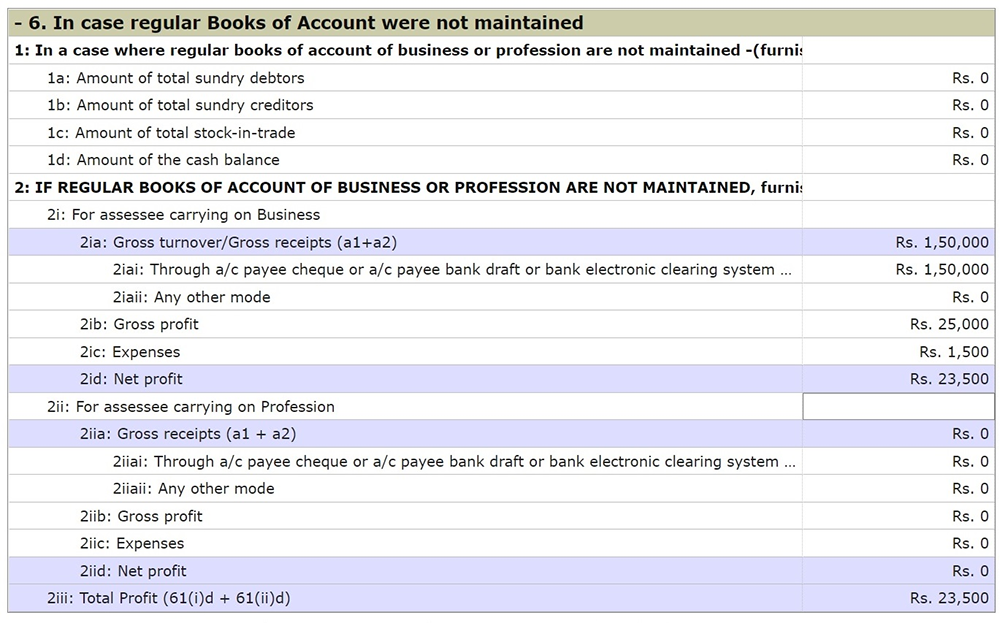Imagine this: you’ve just entered the exciting world of options trading, your heart pounding with every tick of the market. You’ve meticulously analyzed charts, identified potential opportunities, and executed your trades with precision. But as the profits roll in, a chilling thought creeps in – taxes. Yes, those pesky tax obligations come along for the ride, threatening to chip away at your hard-earned gains. The question is, how do you navigate this complex tax landscape and ensure your hard-earned profits aren’t swallowed by Uncle Sam?

Image: www.tradersaccounting.com
Options trading, with its unique characteristics and complex strategies, presents a distinct set of tax considerations. Understanding these nuances is crucial for any options trader, both seasoned veterans and those taking their first steps into the dynamic world of derivatives. This guide aims to demystify the tax complexities of options trading, empowering you with the knowledge to navigate the financial landscape and ensure you’re maximizing your after-tax returns.
Unraveling the Tax Classification: Options as a Special Asset
At their core, options are contracts that grant the buyer the right (not obligation) to purchase or sell an underlying asset at a specific price (the strike price) on or before a specific date (the expiration date). The key differentiator for tax purposes lies in the fact that options are considered derivatives, meaning their value is derived from an underlying asset like a stock, commodity, or index.
This ‘derivative’ status brings about a unique tax classification. Unlike traditional investments like stocks or bonds, where profits are classified as either capital gains or dividends, options trading involves a potentially complex interplay of capital gains, ordinary income, and short-term and long-term tax classifications.
Capital Gains: The Basics
When you sell an option that you’ve held for more than a year, the profits are generally taxed as long-term capital gains. Long-term capital gains tax rates are typically lower than ordinary income tax rates, creating a favorable tax treatment for long-term investments.
However, selling an option that you’ve held for less than a year results in short-term capital gains, which are taxed at your ordinary income tax rate. This means your short-term gains will be taxed at a potentially higher rate than long-term gains.
Beyond Capital Gains: Unveiling the Complexities
The tax implications of options trading go beyond simple capital gains. The nature of your options trading strategy and your holding period significantly impact the tax treatment of your profits. For example, if you engage in short-selling or covered call strategies, your profits could be taxed as ordinary income, even if the holding period is longer than a year.
Furthermore, the tax implications of certain options strategies are specifically defined by the IRS. For example, if you sell a covered call, you are essentially selling the right to someone else to purchase your underlying security at a specified price. While this might seem like a straightforward transaction, the IRS considers the profit from a covered call as ordinary income and not a capital gain.

Image: www.icicidirect.com
The Importance of Documentation: Ensuring Accuracy
Accurate recordkeeping is crucial for navigating the tax complexities of options trading. Carefully tracking your transactions, including trade dates, stock symbols, strike prices, premiums received, and other relevant details, will help you correctly assess your tax obligations.
Holding onto detailed statements and records from your brokerage is essential for accurate reporting. These records will serve as your proof of purchase and sale, helping you determine the holding period, the cost basis of your options, and the amount of profit or loss you’ve incurred.
For instance, if you close out a long call option and make a profit, you’ll need to figure out if this profit is considered a short-term or long-term capital gain. You’ll need to refer to your brokerage records to precisely determine the date you bought the option to understand how long you held it, which dictates whether it falls under short-term or long-term gains taxation.
Professional Guidance: When It Makes Sense to Seek Help
Navigating the intricate world of options trading taxes can be overwhelming for novice traders. If you’re unsure how to handle the tax implications of your options trades, seeking professional guidance from a qualified tax advisor is highly recommended.
A tax advisor can help you understand the specific tax implications of your options strategies, provide personalized advice tailored to your situation, and help you stay compliant with all necessary tax regulations. They can guide you through complex concepts like wash sale rules, straddle rules, and the impact of options trading on your overall tax liability, ensuring that your financial future is secure.
Maximizing Your Returns: Tips for Tax-Smart Options Trading
By understanding the tax implications of your trading strategies, you can proactively manage your tax liability and maximize your after-tax returns. Here are some tips for tax-smart options trading:
- Understand the Tax Implications of Different Strategies: Before entering into any options trades, make sure you fully understand the potential tax consequences. Research different strategies and their tax classifications to make informed trading decisions that align with your tax goals.
- Minimize Short-Term Gains: Long-term capital gains are generally taxed at more favorable rates than short-term capital gains. Consider structuring your trading strategies to minimize short-term gains. By holding your positions for longer periods, you can potentially benefit from the lower tax rates associated with long-term gains.
- Utilize Tax-Loss Harvesting: This strategy involves selling losing options positions to offset capital gains from other investments. The losses incurred from these sales can help reduce your overall tax liability. While the IRS imposes rules on wash sales, which involve rapidly repurchasing the same or similar security immediately after a sale, proper planning can help navigate this complex terrain.
Taxes In Options Trading
Conclusion: Empowering You with Tax Knowledge
The world of options trading is both exciting and complex, demanding a thorough understanding of the financial landscape and tax implications. By understanding the nuances of options trading taxes, you can proactively manage your tax liabilities, optimize your returns, and build a solid foundation for financial success. As you venture into this exciting realm, remember that knowledge is your guiding light, empowering you to navigate the intricate tax maze with confidence.
Take the time to educate yourself, seek professional guidance when needed, and stay informed about the ever-evolving tax laws. Armed with the right knowledge, you can embrace the world of options trading with both excitement and financial clarity.






